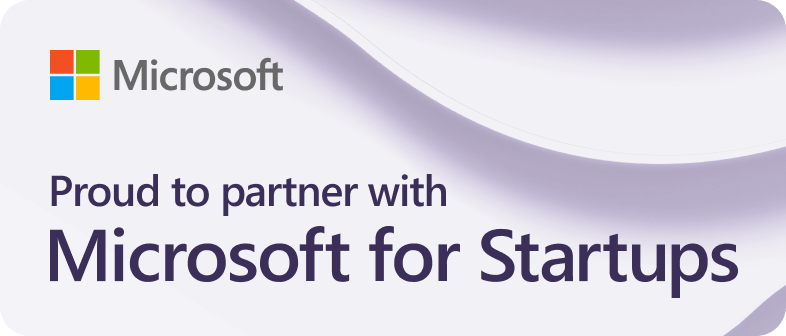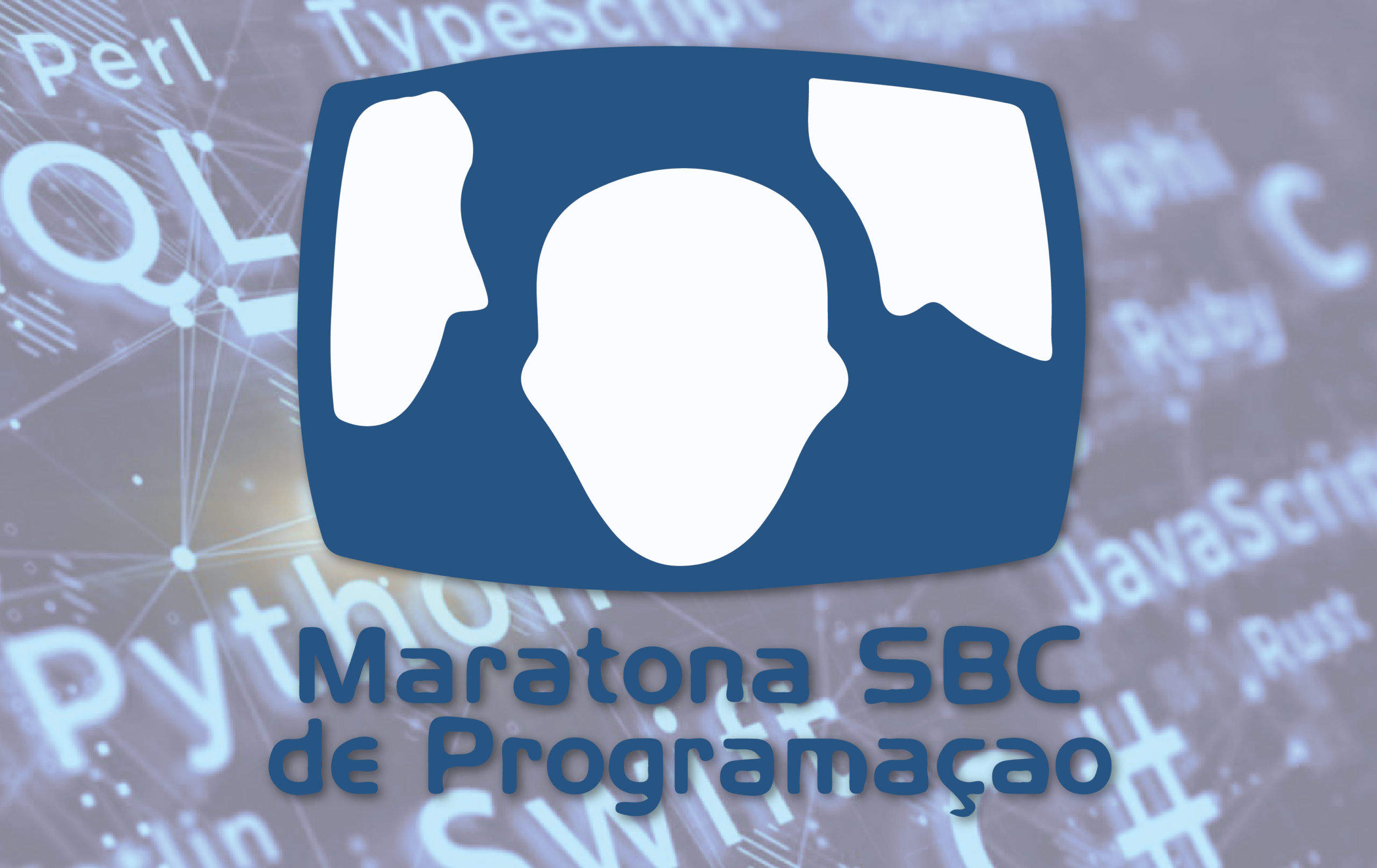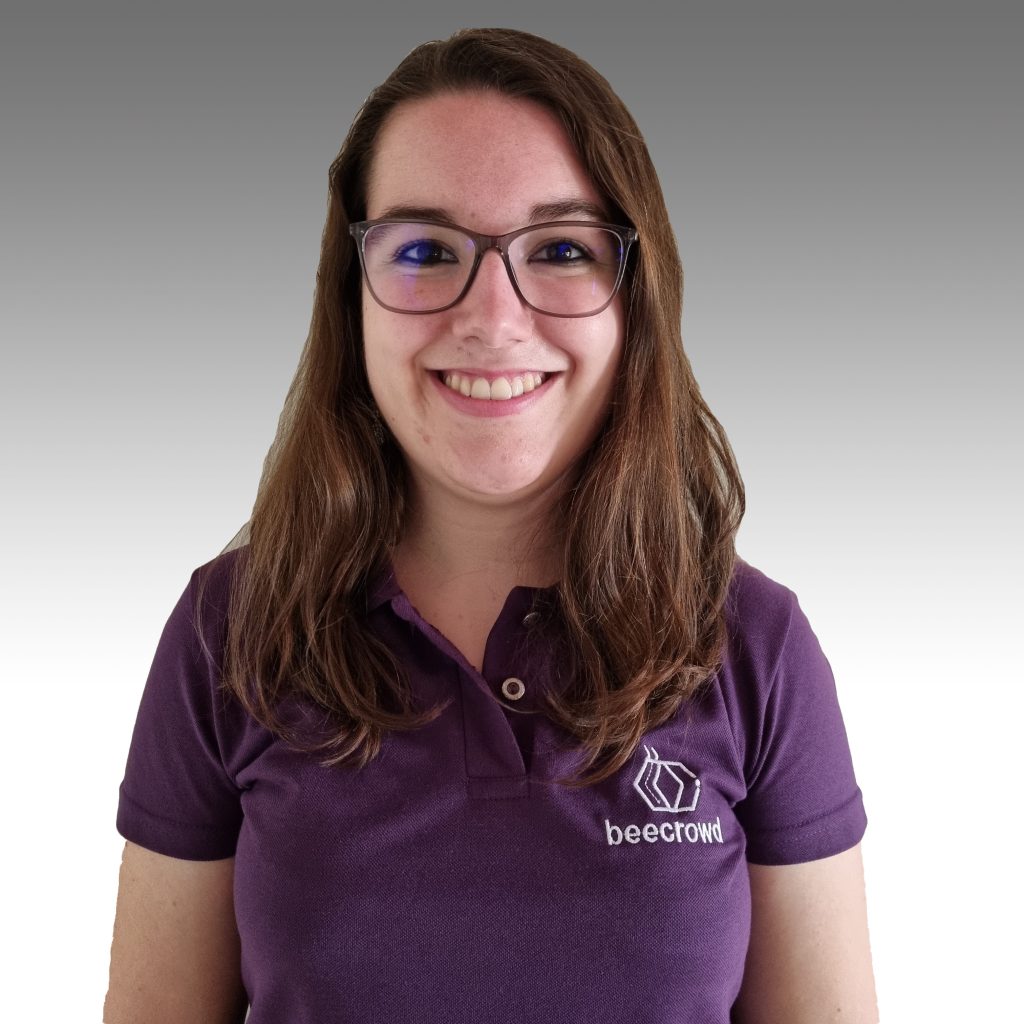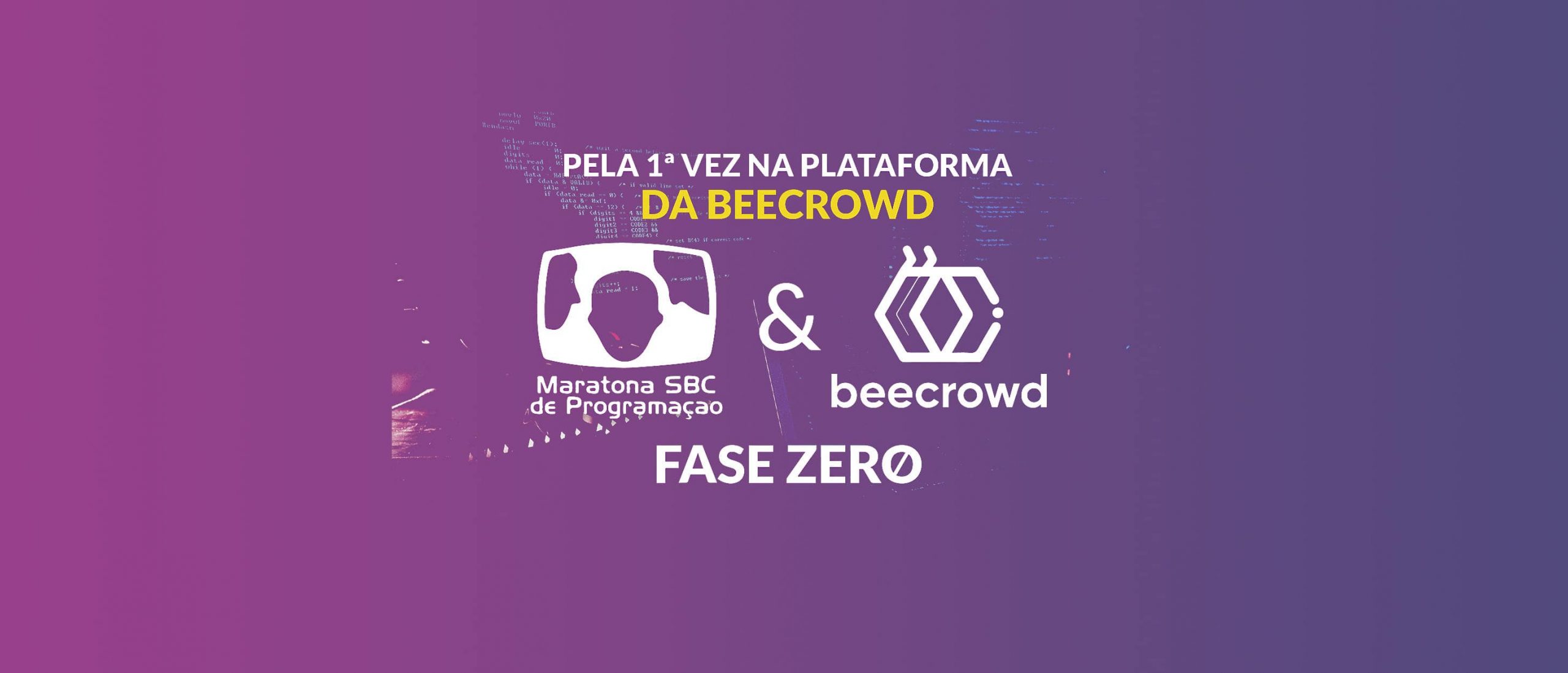
Phase Zero of SBC Programming Marathon
(8 minutes of reading time) Competition is in the DNA of human beings. We are competitive by nature. Usually, we say that competition has been in our lives since the beginning, when people competed for food to survive. Nowadays, we stop to watch football competitions, motor racing and many other sports competitions. But in addition to these competitions there are other types that do not involve physical activities and that competitors do not depend exclusively on their physical condition. In these competitions, the power of reasoning is indispensable. Among these, we can mention the high school Olympiads (mathematics, computer chemistry) and the higher-level ones, such as the SBC Programming Marathon. And it will be about the SBC Programming Marathon that we will talk about in our text today because, few weeks ago, phase zero of this competition took place for the first time on beecrowd platform. We at the beecrowd blog had the pleasure of talking to Leandro Zatesko, professor at the Academic Department of Informatics (DAINF) at the Federal Technological University of Paraná (UTFPR) and member of the organizing committee of the SBC National Marathon. Zatesko was one of the responsible for the realization of Phase Zero of the SBC Marathon that took place in September on the beecrowd platform. If you have doubts about whether to participate in Programming Marathons, read this interview to understand how it works and how important it is for the career of a programmer who wants to be successful! How long have you been part of the organizing committee of the SBC Marathon and what is your experience in this process? I have been participating since August 2021, at the same time I was organizing the 1st Southern Programming Marathon, in partnership with beecrowd (at that time URI Online Judge). Along with Professor Neilor Tonin, we are the representatives of the South Region in the Marathon Committee, and we have been working to give visibility and strengthening the participation of the South in the competition. Among the great achievements we have had in this process since last year, I can highlight the 1st Southern Programming Marathon and the union of the 2nd Southern Programming Marathon with the 5th Northern Programming Marathon, resulting in the 1st edition of Phase Zero of SBC Programming Marathon. How important is it for a student to participate in a programming marathon? First, it must be made clear that competition is not an end. The real objective is that, in the process of preparing for the competition, the student can improve their knowledge and skills, including being able to delve into topics that, although very important, are sometimes not properly covered in the grids of undergraduate courses. It is not by chance that many of the best opportunities in the job market have access to those who have performed well in the competition. Not only can we highlight these unique professional opportunities that the student can access, but we can also highlight the important interaction between the institutions participating in the competition. For the 1st time we had Phase Zero of the SBC Programming Marathon, how was the event? How important is this phase for the Marathon in general? The event was a success, despite a great challenge. We wanted to kick-start this initiative at all costs, together with the organizers of the Northern Programming Marathon and with the support of SBC. Despite the short time we had to organize the competition, we had the participation of more than 300 teams from all over the country. Registration for Phase Zero is free and the competition is online, regardless of registration for Phase One, which is paid and in person. Thus, I consider Phase Zero an important strategy to promote, strengthen, and especially democratize and popularize Competitive Programming in Brazil. That's why Phase Zero was born online and free, with an award policy that values diversity and inclusion, considering, for example, the best teams in each state, the best teams formed only by women, the best formed only by high school students etc. What are the expectations for the SBC Marathon after this phase zero? The idea is that we can have many more institutions participating in the Programming Marathon, training, getting involved. That the 2nd edition of Phase Zero, now organized with more time, and with all the experience of what needs to be improved, can take the Programming Marathon to unprecedented levels of visibility. Any special tips for groups that are signing up for the next phases of the Marathon? The tip is: always be evolving. Don't sabotage your development. Don't believe that something is far beyond what you can learn. Don't get comfortable training only with problems of the types and subjects you already know. Always keep learning new things, studying new things. A little bit of progress that you can make every week will make a lot of difference down the road. Remember that you can participate for 5 years in the Programming Marathon. So, focus on that “long-term”, where you would like to be in the competition 5 years from now. How a programmer with experience in competitive programming apart from others? The mastery of theoretical tools, complexity of algorithms, data structures, and other contents, which are often not seen with the necessary depth in undergraduate courses. Sometimes, the student's training is very focused on software development, but little focused on programming, in the broader sense of solving computational problems like those of the Marathon. Thus, although the student has no difficulty in accessing the abundant vacancies that there are in the job market for development, the most interesting vacancies for programmers, who will need to deal with computational challenges, are already much more restricted. What do companies that sponsor events like the SBC Marathon look for in participants? They seek to identify those who already in the competition demonstrate the skills that align with the company's profile. Not only hard skills, as I have already mentioned, but also soft skills as creativity and teamwork, which are also worked on in the Marathon. What is the career of a marathon student? I mean, based on your experience, what do these students do after they become professionals? Where do they work? I have some former students that I mentored, as well as former colleagues, who, because they did very well in the Programming Marathon, were able to access very good career opportunities. Some fell in love with the more theoretical aspects of Computing, also worked on the Marathon, managed to get into good Graduate programs, and are now at the Academy. Others, in turn, managed to access vacancies for programmers who deal daily with computational challenges like those proposed in the competition. Some of these are in Brazilian companies that require this programmer profile, but some are also in companies abroad. Do you like our content? So, follow us on social media to stay on top of innovation and read our blog.
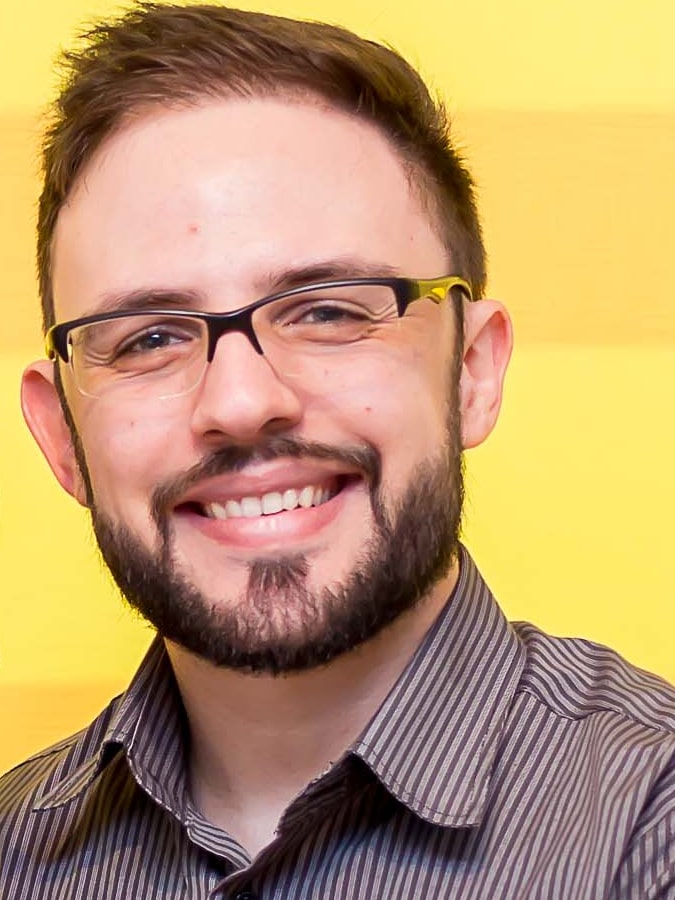
Leandro Zatesko is professor of the Academic Department of Informatics (DAINF) of the Federal Technological University of Paraná (UTFPR) and member of the organizing committee of the SBC National Marathon
Share this article on your social networks:
Rate this article:
Other articles you might be interested in reading
- All (185)
- Career (38)
- Competitions (6)
- Design (7)
- Development (112)
- Diversity and Inclusion (3)
- Events (3)
- History (15)
- Industries (6)
- Innovation (38)
- Leadership (8)
- Projects (23)
- Well being (18)

Cloud Computing and Digital Transformation and Social Impact
(5 minutes of reading)
In recent years, we have witnessed a quiet revolution that is fundamentally reshaping the way we live and work. At the center of this transformation is cloud computing, a technological innovation that transcends physical limits and opens up new horizons of possibilities. This text will talk about this subject that is transforming the IT area. Come read!...

Tech in Education
(9 minutes of reading)
In the contemporary educational landscape, technology plays an increasingly crucial role, revolutionizing not only the way students learn, but also how educators teach. As we adapt to a digitally connected world, new trends are emerging that promise to further transform the way education is designed and delivered. Come read this text to learn about the latest trends in educational technology and explore their impact on student development and the evolution of teaching. Come with us!...

Ethical Software Development
(5 minutes of reading)
Developing software is a complex activity that goes far beyond simple coding. It involves a meticulous process of planning, design, implementation, testing and maintenance to create reliable, efficient, and secure systems. However, in addition to seeking functionality and performance, developers must also carefully consider the ethical aspects of the software they are creating. In this text we will talk about ethics and responsibility when developing software. Come read!...

Balance Between Professional and Personal Growth
(6 minutes of reading)
In a world driven by the constant search for professional success, we often find ourselves immersed in our careers, forgetting the fundamental balance between professional and personal growth. As we dedicate hours to coding, solving problems, and advancing our technical skills, it's essential to remember that our journey as human beings go beyond the lines of code. Come read our text and see super cool tips on how to achieve this balance!...

How to Highlight Programming Competition Awards on your CV
(6 minutes of reading)
In a field as dynamic as software development, it is crucial to stand out from the crowd. An exceptional way to do this is through recognition and awards won in competitive programming competitions. In addition to demonstrating your superior technical skills, these awards attest to your ability to solve complex problems, collaborate as a team, and deliver exceptional results under pressure. Today we will talk about the curriculum and competitions, are you interested? Come with us!...

Open Source and Collaboration
(5 minutes of reading)
If you're ready to start exploring the world of open source, be aware that you will encounter many learning opportunities and challenges. Collaboration is at the heart of this environment, driving innovation and influencing the direction of technology. Come read our text to find out more about this subject!...


 Innovation
Innovation 
